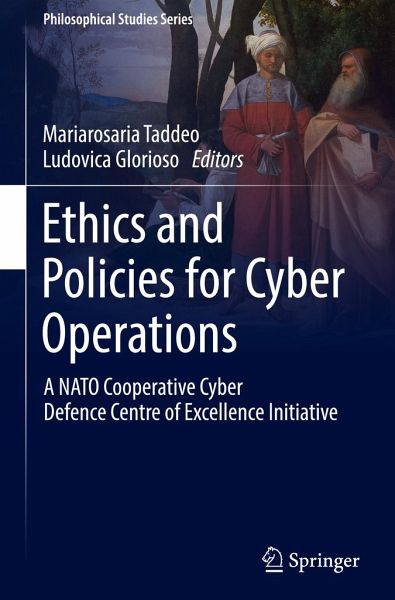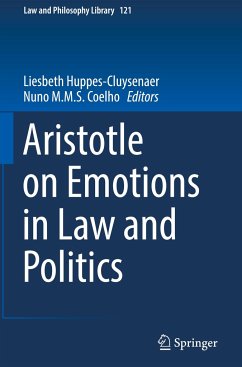
Ethics and Policies for Cyber Operations
A NATO Cooperative Cyber Defence Centre of Excellence Initiative
Herausgegeben: Taddeo, Mariarosaria; Glorioso, Ludovica

PAYBACK Punkte
49 °P sammeln!
This book presents 12 essays that focus on the analysis of the problems prompted by cyber operations (COs). It clarifies and discusses the ethical and regulatory problems raised by the deployment of cyber capabilities by a state's army to inflict disruption or damage to an adversary's targets in or through cyberspace.Written by world-leading philosophers, ethicists, policy-makers, and law and military experts, the essays cover such topics as the conceptual novelty of COs and the ethical problems that this engenders; the applicability of existing conceptual and regulatory frameworks to COs depl...
This book presents 12 essays that focus on the analysis of the problems prompted by cyber operations (COs). It clarifies and discusses the ethical and regulatory problems raised by the deployment of cyber capabilities by a state's army to inflict disruption or damage to an adversary's targets in or through cyberspace.
Written by world-leading philosophers, ethicists, policy-makers, and law and military experts, the essays cover such topics as the conceptual novelty of COs and the ethical problems that this engenders; the applicability of existing conceptual and regulatory frameworks to COs deployed in case of conflicts; the definition of deterrence strategies involving COs; and the analysis of models to foster cooperation in managing cyber crises.
Each essay is an invited contribution or a revised version of a paper originally presented at the workshop on Ethics and Policies for Cyber Warfare, organized by the NATO Cooperative Cyber Defence Centre of Excellence in collaboration with the University of Oxford.
The volume endorses a multi-disciplinary approach, as such it offers a comprehensive overview of the ethical, legal, and policy problems posed by COs and of the different approaches and methods that can be used to solve them. It will appeal to a wide readership, including ethicists, philosophers, military experts, strategy planners, and law- and policy-makers.
Written by world-leading philosophers, ethicists, policy-makers, and law and military experts, the essays cover such topics as the conceptual novelty of COs and the ethical problems that this engenders; the applicability of existing conceptual and regulatory frameworks to COs deployed in case of conflicts; the definition of deterrence strategies involving COs; and the analysis of models to foster cooperation in managing cyber crises.
Each essay is an invited contribution or a revised version of a paper originally presented at the workshop on Ethics and Policies for Cyber Warfare, organized by the NATO Cooperative Cyber Defence Centre of Excellence in collaboration with the University of Oxford.
The volume endorses a multi-disciplinary approach, as such it offers a comprehensive overview of the ethical, legal, and policy problems posed by COs and of the different approaches and methods that can be used to solve them. It will appeal to a wide readership, including ethicists, philosophers, military experts, strategy planners, and law- and policy-makers.












